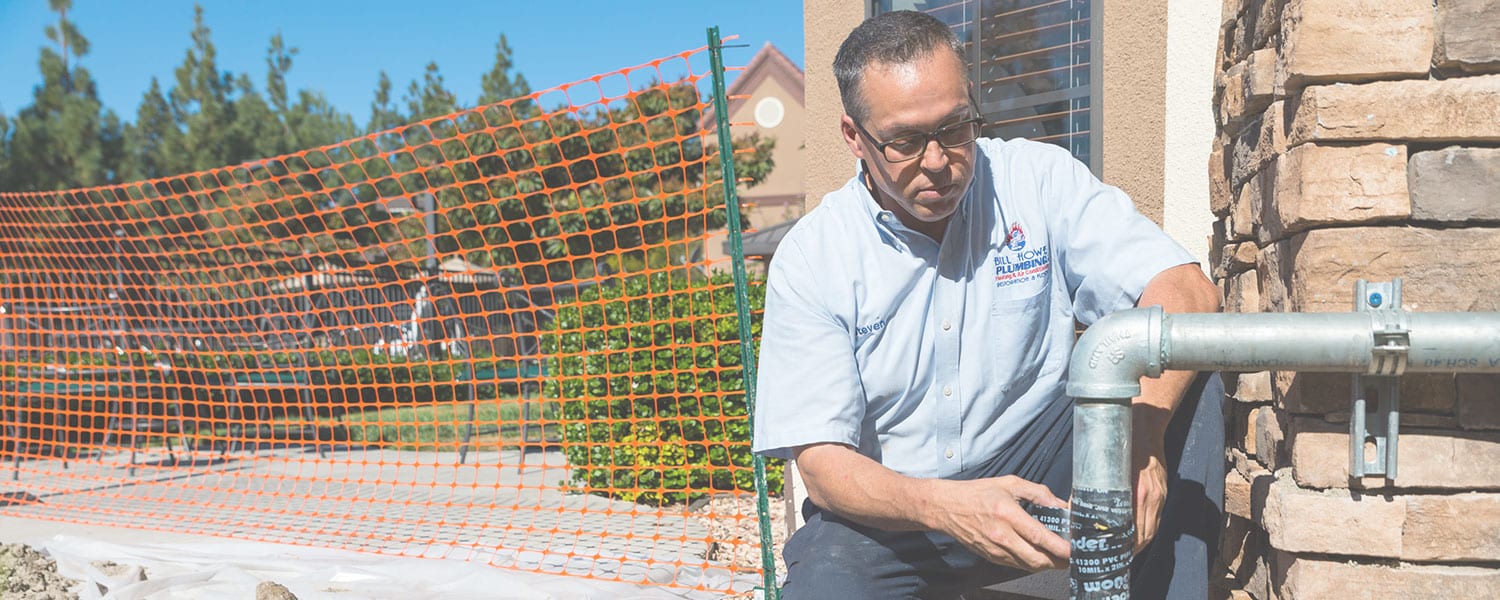There are times when HVAC repair makes more sense than full HVAC replacement. A new HVAC system is a significant investment, but well worth it as an investment in comfort in the right circumstances. HVAC repair is usually the best solution when your problem isn’t complex. But how do you know if you need your HVAC repaired or replaced?
System Failures & Costs
There are many reasons why HVAC repair is necessary. The age of the system plays a significant role in its efficiency and function. Another factor is whether your HVAC system has been regularly maintained during its lifespan.
Some common system failures and the costs associated with repair are:
Electrical Components
Although air conditioners are becoming much more efficient, a lot of units still use significant electricity, which can cause high internal temperatures which lead to possible failure of vital components like electrical contactors and capacitors. In fact, capacitors and contactors are almost guaranteed to need repair at some point during the lifetime of the HVAC system. A capacitor is like a battery and enables the fan motor and compressor to work.
The HVAC contactor unit is a switch-like component and is located in the outdoor condenser. The contractor provides power to the compressor and condenser fans and turns the air conditioning unit on and off.
Both can fail for a couple of reasons, mechanically or electrically. Signs that the capacitor or contactor may be failing are no cold air blowing into the home and/or when the HVAC unit runs even when the thermostat is powered off.
When they fail electrically, it can be dangerous to attempt DIY repairs, as the electrical components carry a high voltage and can leak oil. This happens when the insulation in the wires breaks down, which can occur over time.
Dirt and debris can also affect both components and pests like rodents are notorious for system failures like these.
The good news is that repairing and/or replacing these components is relatively inexpensive. Homeowners will be looking at costs to diagnose the failure, typically a flat fee with most companies. Bill Howe Heating & Air Conditioning charges a flat fee to expertly diagnose HVAC repair needs. AC repair costs after diagnosis will depend on the issue and parts cost.
Fan Motor
The fan motor in the condenser is subjected to the elements over the years. Luckily in San Diego, homeowners do not have to worry about extreme cold and/or extreme heat more than a couple of months out of the year, but because the condenser is outside the home, these parts can still be subjected to elements that may cause failure. Not to mention the salt air in our beach communities!
Homeowners can purchase specialty covers for the outdoor condenser, but it is recommended to check with an HVAC specialist before placing anything on the unit.
Dirt, debris, and lack of preventative maintenance can also cause the fan motors to stop working properly. The fan motor is another relatively simple repair Howver, when not taken care of, these can be costly to replace.
The following are signs that the HVAC motor may need to be replaced:
- Minimal airflow
- Loud noises such as ratting or screeching noises coming from the motor
- Motor shuts off due to overheating
- The fan spins slowly or doesn’t turn on
- Strange odors coming from the AC unit
Refrigerant
One common HVAC repair specialists at Bill Howe Heating & Air encounter is a unit low on refrigerant. While air conditioners should not require refrigerant refills on a regular basis, there are times when it makes sense. It could, however, indicate a larger issue or possible leak. If it is best case scenario, and the unit is using the new approved refrigerant type, a typical refill would run homeowners approximately $40-$60 per pound and should not take more than 5-6 pounds.
If you have an older AC unit, it likely uses R-22 freon. However, R-22 refrigerant has been banned in the United States since 2020 due to its harmful effects on the ozone layer. Of course, you can still run your AC if it uses R-22 freon, but you can no longer refill it once it runs out. And, if there’s a coolant leak, you likely won’t be able to schedule an HVAC repair to fix it. In that case, HVAC replacement is necessary.
Coolant leaks can affect how well your AC functions. A coolant leak can also create excess humidity in your home, which isn’t just uncomfortable, it can also lead to mold and mildew. If there is a refrigerant leak present, it can be difficult to locate as it could be anywhere in the refrigerant circuit, which includes the copper coil, air conditioner line set, and evaporator foil.
Once the leak is located, an HVAC repair specialist can provide an estimate for service and repair. Those costs can range from minor to major, depending on the leak location.
Below are common signs of a coolant leak:
- Warm air is blowing out of the vents
- Frozen evaporator coil
- You hear hissing sounds coming from the HVAC system
- There is too much humidity inside your home
- When AC is on, it’s taking too long for your home to cool down
- Skyrocketing energy bills
Compressor Failure
If an air conditioning unit is less than six years old and the compressor fails, homeowners can breathe a sigh of relief as it is most likely under warranty. The only repair costs will be the labor rate of the licensed company homeowners choose.
If the unit is over six years old or out of warranty, repair costs could spike significantly, making replacement of the HVAC equipment the best option. Often, the cost to replace the compressor will be 50 percent or higher of the cost of a new system. This is why many specialists recommend HVAC replacement over replacing the compressor.
Common signs of AC compressor failure:
- Minimal air flow coming from the AC vents
- Warm air blowing instead of cool air
- Circuit breaker keeps tripping
- Clicking or chattering noises
- HVAC unit vibrates when kicking on
The best way to be certain that the AC compressor is failing is to call an HVAC specialist. A specialist can better determine whether to move forward with HVAC repair or HVAC replacement.
Considerations for Deciding Whether to Repair or Replace Your HVAC System
HVAC repair or replacement? Many homeowners with an AC over ten years old are wondering about this. While HVAC repair costs can certainly be much lower than having a new system installed, they can add up over time. Also, an older AC may not be cooling or heating your home like it used to.
Yes, a new HVAC system requires an initial investment. The following are some factors you’ll want to consider whether you should replace your AC:
| The age of your HVAC system | We’ve mentioned the age of your HVAC system throughout because it’s one of the most significant factors to consider. If your air conditioner is nearing the end of its lifespan, HVAC repairs aren’t going to cut it. Choosing an HVAC replacement can save you from dealing with unbearable heat or cold in your home if it starts functioning altogether. |
| HVAC costly repairs | Some repairs, like compressor issues, can cost more than half of what you’d pay for an HVAC replacement. So, a new AC unit is the better option if that's the case. |
| Frequent HVAC repair costs | Let’s say you just had your HVAC serviced a couple of weeks ago, and now it requires another repair. Except this time, it’s an entirely different type of HVAC repair. Frequent breakdowns are an inconvenience and can drain your wallet quickly. If this sounds familiar, consider HVAC replacement. |
| Better energy savings with a new HVAC system | It’s no secret that an older AC unit must work harder to make your home temperature comfortable. When your HVAC has to work harder, it’s consuming more energy, which can lead to a spike in your energy bill. Energy costs are trending higher, but you can minimize the pain with a new HVAC replacement. An outdated unit is precisely that; it’s outdated. Consider a new unit and embrace the potential energy savings! |
| You may be eligible for local and state tax credits | When you invest in a new HVAC, you can take advantage of local and state tax credits and utility rebates! |
When HVAC Replacement Makes More Sense
Age is the most significant factor in replacing a unit that still technically works but is breaking down. If homeowners find they are calling HVAC technicians and repair specialists for more than regular maintenance, it might be time to invest in a new system.
There’s no denying that routine HVAC maintenance is an excellent way to minimize the need for HVAC repair. However, even the most maintained air conditioner has a recommended serviceable lifespan of up to 15 years. Some homeowners can get even more from their HVAC, but the unit will be less efficient over time, driving up energy bills.
So how much is an HVAC replacement? New cooling and heating systems range from $5,000 and up depending on the system specifications, type of unit (package unit, split system, ductless), and home configuration. Because there is a wide range of options for homeowners, it is nearly impossible to provide general quotes for an HVAC replacement. When you’re ready to purchase and have a new AC installed, the best thing you can do is to call a professional from Bill Howe.
With system efficiencies increasing year after year, homeowners can expect to recoup many costs through a system with higher energy efficiency. When coupled with the ideal programmable thermostat, homeowners can be energy-wise and save on operating costs.
Did you know that you can have a smart thermostat installed on your existing system? When you have a smart thermostat installed, it can improve the efficiency of your heating and cooling unit. Homeowners can also reap other benefits of a connected home, too. Benefits include increased control, lower energy bills, convenience, safety, security, and a possible increase in home value!
We know that the upfront costs of a new HVAC system can give you sticker shock. But in the long run, you’ll recoup the costs with long-term energy savings and fewer HVAC repair costs. Here are some other benefits of HVAC replacement:
- Increased home comfort
- Much better efficiency
- Quieter operation
- Robust warranty
New HVAC Costs
Factors that influence the HVAC replacement costs:
- The size of your home
- HVAC system make and model
- The size of HVAC required to cool and heat your home
- Labor fees
- Efficiency rating of unit
- Air duct length
- Difficulty of removing current HVAC system
- Disposal cost of old AC unit
- Climate and weather
Love Your HVAC System
The most important aspect to the care and maintenance of your HVAC system is regular tune-ups from licensed experts. Just like your car, furnaces and air conditioners need regular maintenance for optimal operating conditions. The same rings true for your HVAC system!
Filter changes, system safety checks, cleaning, and minor adjustments can mean the difference between hundreds spent on repairs and thousands on replacement costs.
Bill Howe Heating & Air recommends scheduling an annual tune-up in the Spring season before heavy use and in the fall before the weather cools. By performing regular and preventative maintenance, you’ll know your system works when you need it.
The experts at Bill Howe can even help you design the perfect schedule for a system to run during the hot and cold months and provide tips to keep your air conditioning and heating system happy and running all year long.
Call 1-800 BILL HOWE (245-5469) today for a free estimate on HVAC replacement or to schedule a tune-up. From plumbing inspections to HVAC installation and repairs and drain cleaning, no one beats the service and experience you get from Bill Howe.




